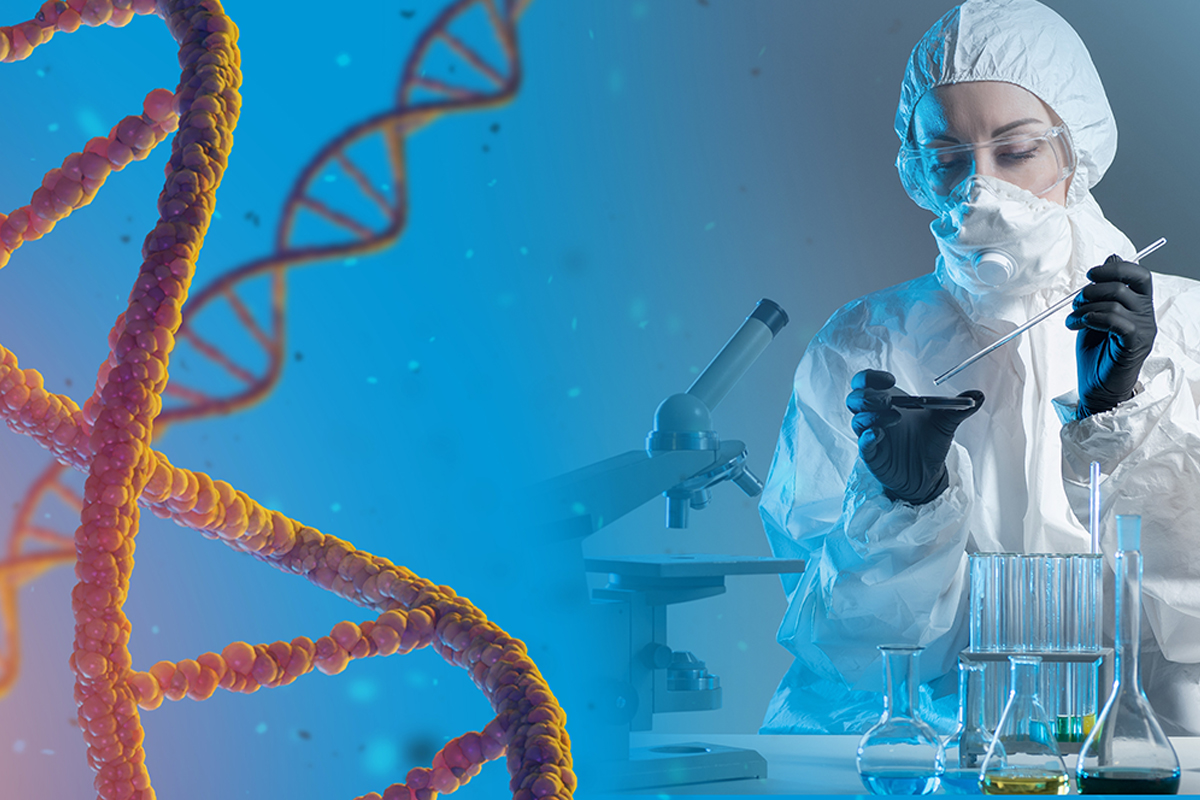For the first time, scientists have successfully sequenced the Y chromosome in its entirety, uncovering insights that could prove pivotal in the research on male health issues, including infertility.
Two decades ago marked the beginning of attempts to unravel our genetic makeup, but there remained substantial gaps in the sequences of our 23 chromosome pairs. The international Telomere-to-Telomere (T2T) Consortium, comprising 100 scientists, managed to fill in most of these gaps last year.
Yet, more than 50% of the Y chromosome’s sequences, being the most intricate and smallest of the 46 human chromosomes, were still shrouded in mystery. Now, this group of scientists has successfully bridged that knowledge gap, sharing their findings in the latest edition of the Nature journal.
“Merely a few years back, the Y chromosome was half absent in our reference databases,” commented Monika Cechova, a co-author of the study and postdoctoral fellow at the University of California, Santa Cruz. “Its complexity made us question if sequencing it was even feasible. The progress we’ve achieved is significant.”
Unraveling the Y Chromosome’s Secrets
Every human cell typically contains a pair of sex chromosomes. Males possess one X and one Y chromosome, while females have two X chromosomes. This newly detailed Y chromosome sequence paves the way for more in-depth research into health issues linked to it, like infertility caused by the non-production of sperm.
Kenneth Walsh, a professor at the University of Virginia School of Medicine, though not part of this research, mentioned the growing evidence indicating the Y chromosome’s role in overall health and longevity. “The Y chromosome had long been the genome’s ‘black box’,” Walsh explained. “This groundbreaking analysis offers insights into its regulatory functions and potential protein-encoding.”
Interestingly, as people age, many begin to lose their Y chromosome in specific cells, especially in rapidly regenerating cells like blood cells. While the reasons for this remain unclear, recent studies have associated this loss with increased risks of bladder cancer and heart disease. This comprehensive Y chromosome blueprint might offer clearer insights into such links.
Decoding the Intricacies of the Y Chromosome
Deciphering the Y chromosome was challenging, given its unusually repetitive nature. DNA’s four letters (A, C, G, T) form pairs within a double helix structure, creating chromosomes. But, on the Y chromosome, over 30 million of its 62.5 million letters are repetitive sequences, including palindromes.
“Although the Y chromosome is the smallest, it’s incredibly intricate, with vast stretches of repeated DNA sequences,” noted Cechova.
Assembling genetic sequence data is akin to reading a chopped-up lengthy book, says the National Human Genome Research Institute. When the same line appears millions of times, determining its original sequence becomes a daunting task, especially for the Y chromosome where the repetition spans nearly half its length.
With the advent of “long-read” sequencing techniques and algorithms capable of processing repetitive sequences, the researchers achieved this monumental task, adding more than 30 million repetitive base pairs to the human genome’s reference.
Recently, a pangenome was constructed, encompassing the DNA of people from almost every part of the globe, enhancing the inclusivity of the human genome. Alongside the main research, a team analyzed Y chromosomes from 43 men across 21 global populations to understand their genetic variations.
Charles Lee, senior author of this parallel research, emphasized the significance of the Y chromosome in men’s overall health. He stated, “With this research, the complete Y chromosome can be included in future genome sequencing projects to better understand health patterns and diseases.”
The successful sequencing of the Y chromosome is not just a testament to the leaps in scientific innovation and technology but also a monumental step in the ongoing journey to understand human genetics at its core. This accomplishment promises to shed light on the myriad health issues associated with the Y chromosome and, more broadly, deepens our comprehension of the genetic fabric that shapes our existence. As science continues to push boundaries, it’s apparent that the Y chromosome’s enigmas will no longer remain in the shadows.







